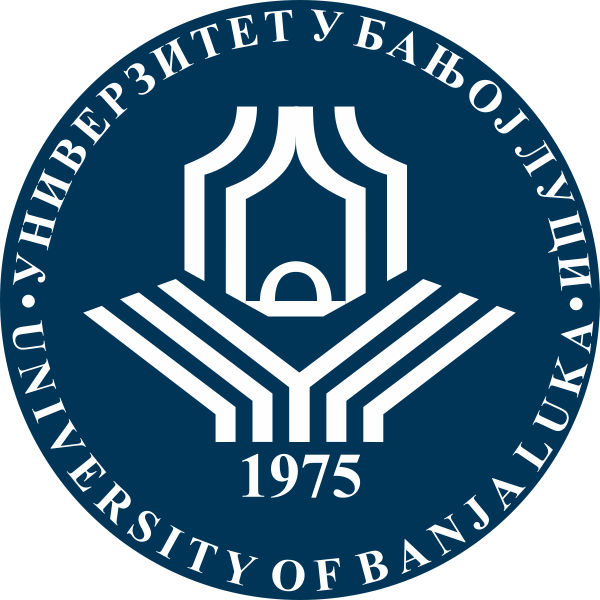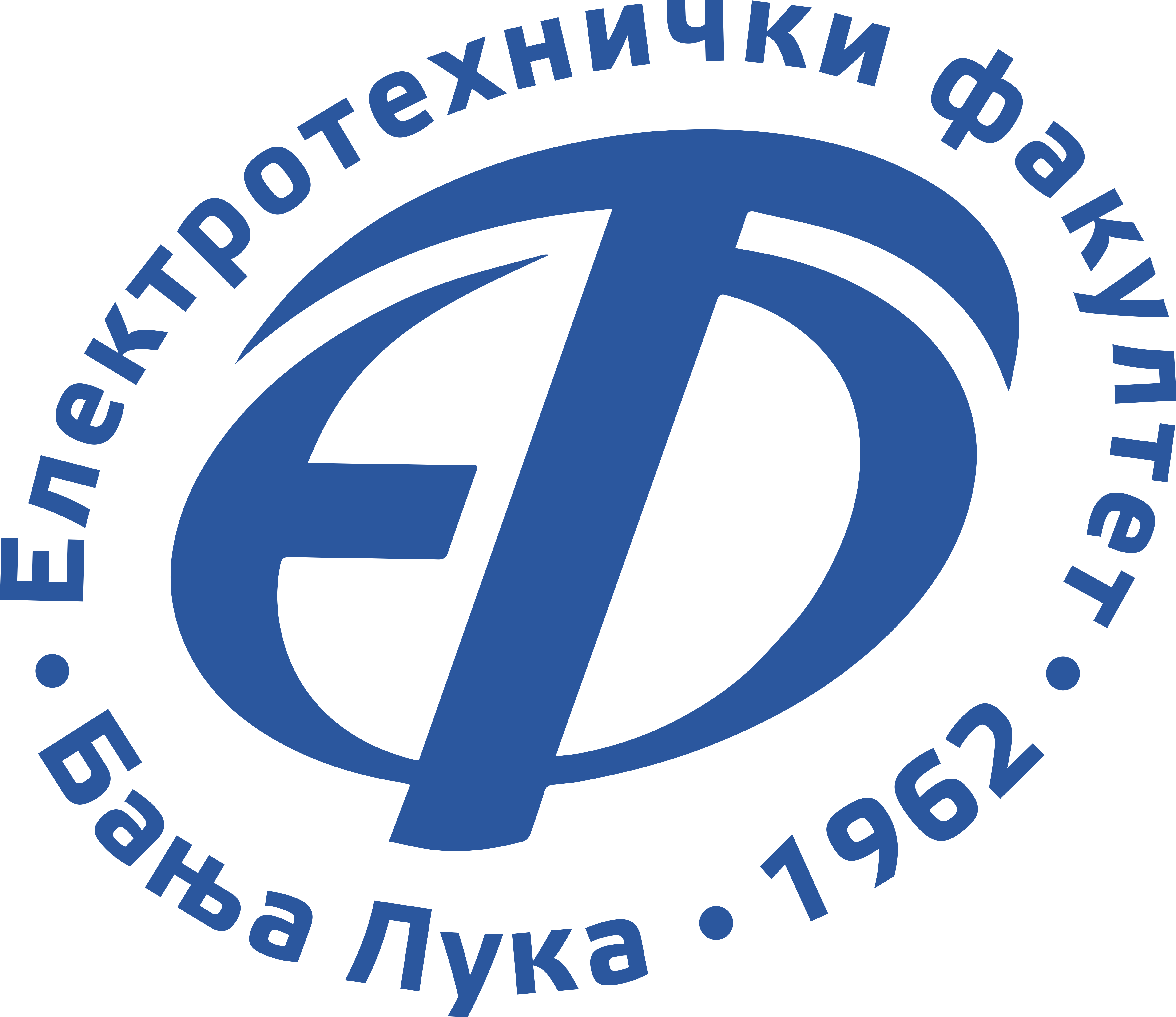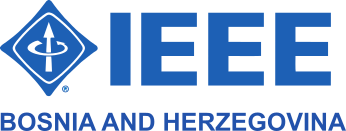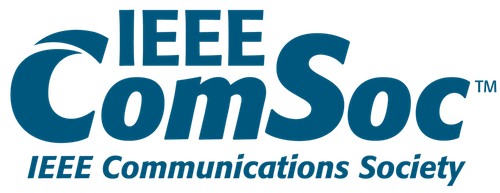
Communication Technologies and Services"
Agenda
July 2, 2018
Venue: Hotel Bosna, Crystal Room
| Time | Speaker(s) | Affilation |
|---|---|---|
| 09:00-09:15 | Prof. Dr Gordana Gardašević, Vice-Dean for Science and Research Prof. Dr Branko Blanuša, Dean Professor Goran Latinović, PhD, Vice-Rector for Scientific Research and University Development |
Faculty of Electrical Engineering University of Banja Luka |
| Opening Talk | ||
| 09:15-10:15 | Prof. Dr Danilo P. Mandić | Imperial College London |
| Title. Hearables: Enabling Technologies for Lifelong Learning in E-Health
Future health systems require the means to assess and track the neural and physiological function of a user over long periods of time, and in the community. Hearables is a recent concept which makes use of the constant position of the ear relative to the brain and vital organs, to investigate the possibility of recording the Electroencephalogram (EEG), Electrocardiogram (ECG), respiration, temperature, pulse, and activity from the ear canal. We focus on our own pioneering and patented works on Ear-EEG, Ear-ECG, and multimodal electro-mechanical collocated sensing, to provide robust measurement of both neural activity and vital signs in most daily activities in the wild. This framework opens up the avenues for a subsequent use of a number of machine learning paradigms, from lifelong learning to Big Data, in some most pressing problems we are facing such as the care for the elderly, management of chronic diseases out of the clinic, and dealing with hearing deficits and head trauma. A brief outline of some candidate machine learning technologies in this context is provided, including the Big Data paradigms, the role of tensor decompositions, and the way to learn the "transfer function", between human brain responses and motor actions in a tensor decomposition framework.
|
||
| 10:15-11:00 | Prof. Dr Miodrag Mihaljević | Mathematical Institute Serbian Academy of Sciences and Arts Belgrade, Serbia |
| Title. On Certain Challenges of Cyberspace Systems Based on Blockchain Technology
Blockchain technology has been recently recognized as an important underlying approach for providing integrity, authenticity and privacy control in the cyberspace with a huge number of different instantiations and applications including the ones in critical infrastructures. A key component of the blockchain technology is the consensus protocol which provides correctness of the blocks. Also, all blockchain based systems require appropriate cryptographic components. Accordingly, this talk addresses some of the consensus protocols and cryptographic components which yield required level of security and are suitable for implementation within the given constraints on processing complexity and energy consumption. Certain applications of the considered consensus protocols and cryptographic techniques in the systems based on blockchain technology are briefly discussed.
|
||
| 11:00-11:15 | Coffee break | |
| 11:15-12:00 | Prof. Dr Natalija Vlajić | Lassonde School of Engineering York University Toronto, Canada |
| Title. Detecting and Defending Against Internet Bots Using Machine Learning
In today’s Internet, over 50% of the overall traffic is generated by bots (not humans). Hence, the stability
and performance of most Web-sites is greatly impacted by the site’s ability to: 1) detect all visiting bots (i.e., their respective sessions), 2) separate benign from malicious bots, 3) defend against activities of malicious bots. In the first part of this talk, a general overview of different categories of Internet bots will be provided. Subsequently, the main weaknesses of the existing application-layer bot-detection solutions as proposed in the research literature and in the industry will be discussed, and a number of our research project pertaining to bot detection and analysis will be presented. For instance, in one of our capstone projects, we have developed a system capable of identifying a broad range of bot-generated applicationlayer DDoS attacks, both in static and dynamic Web domains, through the use of unsupervised machine learning. The talk will close with a discussion about the future challenges of using machine learning in the broader field of computer security.
|
||
| 12:00-12:45 | Prof. Dr Predrag V. Pejović | Faculty of Electrical Engineering University of Belgrade, Serbia |
| Title. Networking of Objects in Industry Using Free Software Tools
Electronic data processing in industrial automation systems, which roughly started with programmable
logic controllers (PLCs) in late sixties of the previous century, expanded tremendously and nowadays
involve "local" devices, like PLCs, networking capable measurement devices, smart sensors and
similar data acquisition devices, as well as networking capable actuators. Availability of components
resulted in factory automation requiring distributed control systems (DCS) and supervisory control and
data acquisition (SCADA) systems, having data communication networking as an essential part.
Although in academic circles foreseen before, public attention to security of such systems rose after the
appearance of Stuxnet malware. Similar to general purpose computer systems, it became obvious that
to control your own factory, you need to have your control software under your control, which requires
access to source code and some competence, the task is too important to be outsourced. In this
presentation, experiences from industry in deploying of such systems are shared. Tango controls and related tools are addressed, as well as EPICS and Node-RED in an attempt to apply them in networking and control of objects in
industry. As it would be described, social and management obstacles turned out to be a bigger trouble
than the technical ones.
|
||
| 12:45-13:30 | Lunch break | |
| 13:30-14:15 | Ogi Redžić | Alliance senior vice president Connected Vehicles and Mobility Services Renault-Nissan-Mitsubishi Paris, France |
| Title. Revolution in Automotive Industry
The automotive industry is facing multiple disruptions. Market and customer profiles: increasingly young and urban, 66 % of population living in cities by 2050. Regulatory: more stringent environment > 85% of countries covered by CAFE regulation. Powertrain: Increasingly electric, driven by regulation, tech improvement and customer demand. Autonomous drive: Big benefits both for individual owners and for shared mobility. All of these disruptions are leading us to an entirely different world of mobility in the near future. You will hear about what industry leaders are doing to address these new threats and opportunities.
|
||
| 14:15-15:00 | Prof. Dr Gordana Gardašević | Faculty of Electrical Engineering University of Banja Luka |
| Title. Toward Deterministic Industrial IoT: Challenges and Solutions
The Internet of Things (IoT) interconnection of a wide variety of devices of any size, at any distance, and providing performances similar like those in wired deterministic networks, posed a strict requirements in terms of data transmission reliability, energy efficiency, throughput, and delay bounds. The concept of deterministic wireless networking assumes precise clock synchronization and flow scheduling, optimized bandwidth usage, and advanced Quality of Service (QoS) guarantees both for data and control traffic. In order to support these requirements in industrial IoT networks and to involve broad research community in standardization activities, open-software and open-hardware prototyping and development has become of crucial interest. This presentation will provide the overview of current standardization acitivities and challenges in the field of industrial IoT. The results of experimentation and ongoing project activities will be discussed.
|
||
| 15:00-15:30 | Doc. Dr Nikša Jakovljević | Faculty of Technical Sciences University of Novi Sad, Serbia |
| Title. Automatic Detection of Respiratory Effort Related Arousals from Polysomnographic Recordings
There is a strong agreement that the sleep is very important for overall health and well-being, thus many researches studies investigate sleep and sleep disorders. This year, PhysionNet and Computing in Cardiology organize a challenge to develop a system which classifies arousal events from physiological signals collected during polysomnographic sleep studies. The recorded physiological signals include: electroencephalography (EEG), electrooculography (EOG), electromyography (EMG), electrocardiology (ECG), airflow and oxygen saturation (SaO2). We will present our solution for detection of respiratory effort related arousals, which is based on long-short term memory (LSTM) model. Important part of this presentation will be an explanation of feature selection procedure, as well.
|
||
| 15:30-15:45 | Coffee break | |
| 15:45-17:30 | Keynote Speakers Industry Representatives Goverment Representatives |
Panel on Academia/Industry Interactions: Approaches, Options, and Challenges |
This panel will bring together representatives in academia, industry, and government in order to provide an open dialogue on the future of communication technologies. The goal is to identify key technology drivers that can deliver significant capacity, coverage, and user-experience benefits, thus providing new applications and services. Topics:
| ||



